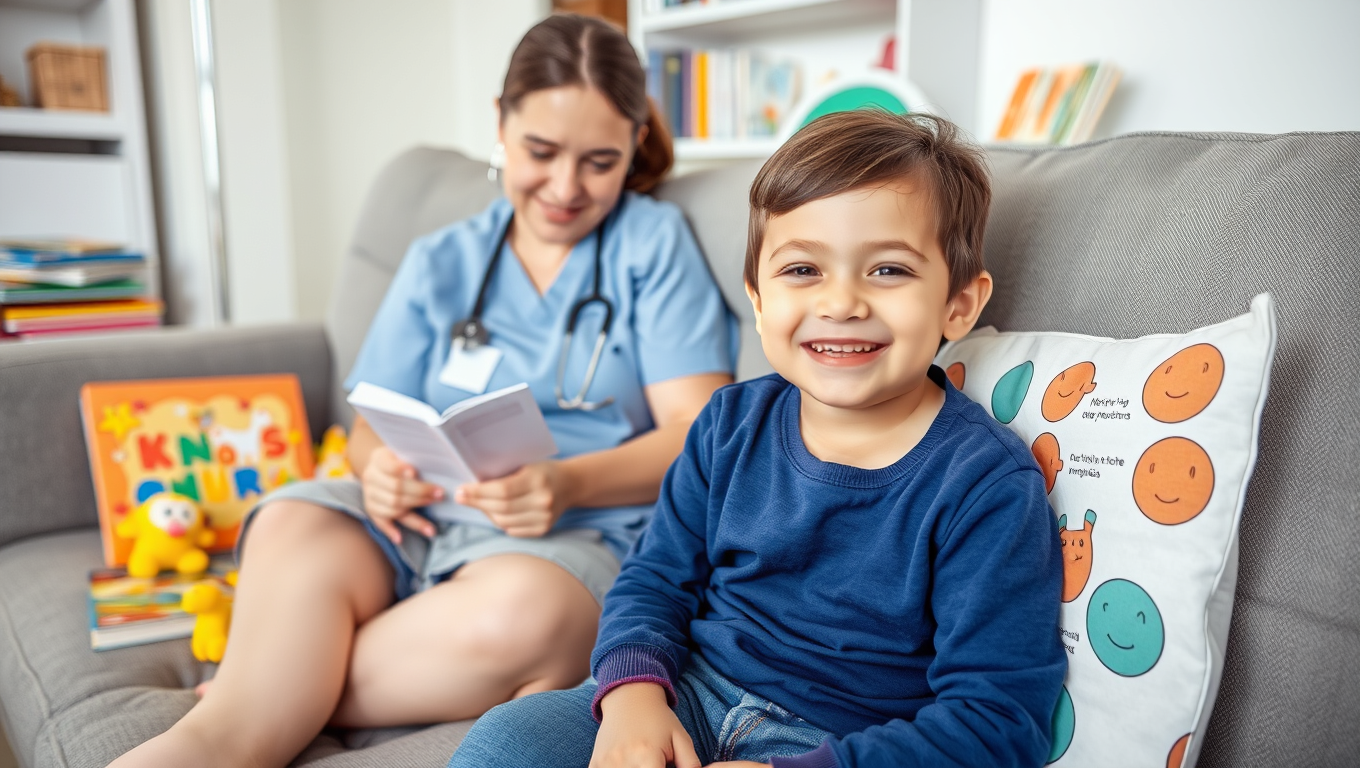While we try to keep things accurate, this content is part of an ongoing experiment and may not always be reliable.
Please double-check important details — we’re not responsible for how the information is used.
Children's Health
Home Sweet Recovery: Study Finds Half of Kids with Complicated Appendicitis Can Heal at Home
Almost half of children who require surgery for complicated appendicitis can safely complete their recovery at home, according to a new study.

Children's Health
Uncovering the Inaccuracy: Why Common Blood Pressure Readings May Miss 30% of Hypertension Cases
Cambridge scientists have cracked the mystery of why cuff-based blood pressure monitors often give inaccurate readings, missing up to 30% of high blood pressure cases. By building a physical model that replicates real artery behavior, they discovered that low pressure below the cuff delays artery reopening, leading to underestimated systolic readings. Their work suggests that simple tweaks, like raising the arm before testing, could dramatically improve accuracy without the need for expensive new devices.
Children's Health
A Genetic Breakthrough: Predicting Adulthood Obesity in Early Childhood
What if we could predict obesity before it ever takes hold? A global team has created a genetic test that forecasts a child’s risk of adult obesity before age five—years before other factors kick in. By analyzing data from over five million people, their polygenic risk score doubles the predictive power of previous tools. While genetics isn’t destiny, those with higher genetic risk respond better to weight loss interventions but may regain weight quickly. The tool isn’t perfect, it performs far better in people of European ancestry, but it’s a game-changer in early prevention.
Alternative Medicine
“Pregnancy Shot Cuts Baby RSV Hospitalizations by 72% – Protecting Newborns for Months”
A new UK study shows that vaccinating pregnant women against RSV has led to a staggering 72% drop in hospitalizations of newborns with severe lung infections. By passing virus-fighting antibodies to their babies, vaccinated mothers are helping shield infants during their most vulnerable early months.
-

 Detectors11 months ago
Detectors11 months agoA New Horizon for Vision: How Gold Nanoparticles May Restore People’s Sight
-

 Earth & Climate12 months ago
Earth & Climate12 months agoRetiring Abroad Can Be Lonely Business
-

 Cancer12 months ago
Cancer12 months agoRevolutionizing Quantum Communication: Direct Connections Between Multiple Processors
-

 Albert Einstein12 months ago
Albert Einstein12 months agoHarnessing Water Waves: A Breakthrough in Controlling Floating Objects
-

 Chemistry11 months ago
Chemistry11 months ago“Unveiling Hidden Patterns: A New Twist on Interference Phenomena”
-

 Earth & Climate11 months ago
Earth & Climate11 months agoHousehold Electricity Three Times More Expensive Than Upcoming ‘Eco-Friendly’ Aviation E-Fuels, Study Reveals
-

 Agriculture and Food12 months ago
Agriculture and Food12 months ago“A Sustainable Solution: Researchers Create Hybrid Cheese with 25% Pea Protein”
-

 Diseases and Conditions12 months ago
Diseases and Conditions12 months agoReducing Falls Among Elderly Women with Polypharmacy through Exercise Intervention





























